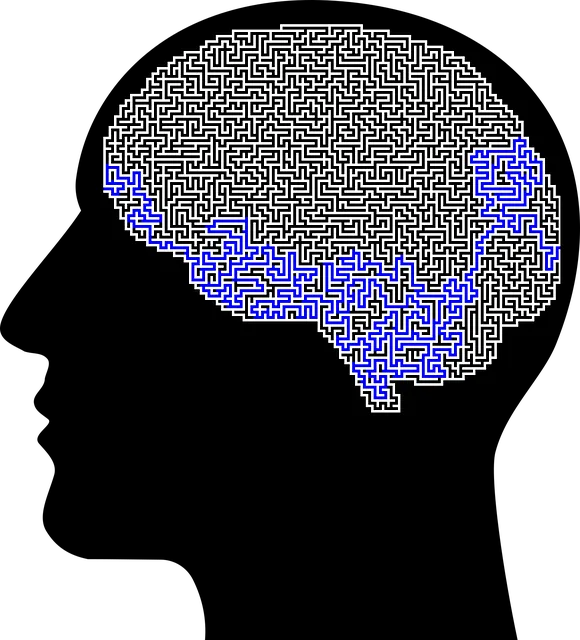Golden Kaiser Permanente's stress management workshops are transformative experiences led by dedicated mental health professionals who normalize conversations about stress. These sessions address physical, emotional, and mental stressors, teaching coping strategies like self-care, mindfulness, and goal setting to prevent burnout. By combining theoretical knowledge with interactive activities, the workshops empower individuals to manage mood, boost confidence, and build resilience through shared learning and open dialogue, aligning with a comprehensive Mental Health Policy Analysis and Advocacy.
Stress management workshops are valuable tools for improving well-being in both personal and professional settings. This article explores the critical role of such programs, focusing on strategies developed by Golden Kaiser Permanente mental health providers, known for their expertise in stress mitigation. We’ll delve into understanding the root causes and impacts of stress, designing effective workshop content, and successful implementation techniques. By leveraging these insights, organizations can empower individuals to navigate challenging situations with resilience and tranquility.
- Understanding Stress and its Impact: A Foundation for Workshops
- Golden Kaiser Permanente Mental Health Providers: Expertise and Role
- Designing Effective Stress Management Workshop Content
- Implementing and Evaluating the Workshop: Strategies for Success
Understanding Stress and its Impact: A Foundation for Workshops

Stress is an inevitable part of modern life, but understanding its origins and impact is key to effectively managing it. Workshop organizers, like those at Golden Kaiser Permanente, often focus on empowering individuals to recognize their stress triggers and develop healthy coping mechanisms. This foundational step involves raising awareness about the various forms stress can take—be it physical, emotional, or mental—and how it affects overall well-being. By facilitating open discussions, these workshops aim to normalize conversations around stress, encouraging participants to view it as a manageable challenge rather than an overwhelming obstacle.
The impact of chronic stress on both physical and mental health is profound. It can lead to burnout, affecting productivity and overall quality of life. This is where Golden Kaiser Permanente’s mental health providers step in, offering valuable insights into burnout prevention strategies. Workshops often delve into self-care routine development, teaching participants how to prioritize their mental health through techniques like mindfulness, relaxation exercises, and setting realistic goals. By fostering a deeper understanding of stress and its far-reaching effects, these sessions lay the groundwork for lasting positive changes, ultimately contributing to a more comprehensive Mental Health Policy Analysis and Advocacy.
Golden Kaiser Permanente Mental Health Providers: Expertise and Role

The Golden Kaiser Permanente mental health providers are a team of experts dedicated to empowering individuals and communities with effective stress management tools. Their role extends beyond traditional therapy; they facilitate workshops, offer risk assessments for mental health professionals, and guide patients in developing self-care routines tailored to their unique needs. These providers leverage their extensive knowledge to foster empathy building strategies within the organization and its network. By integrating these comprehensive approaches, Golden Kaiser Permanente ensures that both staff and clients cultivate resilience in the face of stress.
Designing Effective Stress Management Workshop Content

When designing a stress management workshop, it’s essential to create content that resonates with participants from all walks of life. According to Golden Kaiser Permanente mental health providers, a well-rounded program should address not just the symptoms but also the underlying causes of stress. Incorporate interactive activities, case studies, and practical tips to engage attendees and enable them to apply what they learn in their daily routines.
Focus on Mood Management and Emotional Well-being Promotion Techniques that can be tailored to diverse needs. Teach participants confidence-boosting strategies that help them navigate stressful situations with resilience. By combining theoretical knowledge with hands-on exercises, the workshop becomes a transformative experience, empowering individuals to prioritize mental health proactively.
Implementing and Evaluating the Workshop: Strategies for Success

Implementing and evaluating a stress management workshop requires strategic planning and a holistic approach to ensure its success. At Kaiser Permanente, mental health providers have been pioneering innovative methods to enhance employee well-being. One effective strategy is integrating interactive activities that foster open communication and build social skills among participants. These sessions not only teach practical stress reduction techniques but also create a supportive environment where individuals can share their experiences and learn from one another, fostering a sense of community.
Moreover, risk management planning for mental health professionals plays a crucial role in workshop evaluation. By setting clear goals, utilizing pre- and post-assessments, and gathering feedback through surveys or focus groups, organizers can gauge the impact of the program. This data-driven approach allows for continuous improvement and ensures that the Stress Management workshop aligns with the evolving needs of Kaiser Permanente’s mental health providers, ultimately contributing to enhanced patient care and professional growth.
Stress management workshops, backed by the expertise of Golden Kaiser Permanente mental health providers, can significantly improve participants’ well-being. By understanding stress and its impact, designing effective content, and implementing successful strategies, these workshops offer a powerful tool to navigate life’s challenges. Leveraging the insights and methods shared in this article, organizations can empower their members with valuable skills to manage stress, fostering healthier minds and improved overall quality of life.






